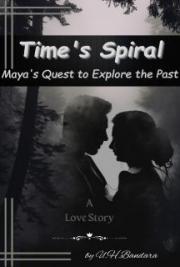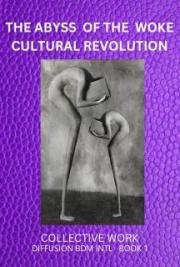There is an answer.
I’m not an expert, but I write to you in the hope that I can offer you what I have learnt, and
the solutions I have used to overcome my own victim mentality. The fact that you have read
this is probably because you already recognise that being abused affect who we are and are
seeking solutions for your own healing.
One of the things I had to learn to do was to take responsibility for the words that came out of
my mouth. When I found out I was irresponsible, I made a declaration that I would not say
anything about anyone that I would not say in front of their face. However, growing up
around people who loved to gossip, I soon learnt that my words were tested regularly. I
found, like most people, that I put people down behind their back, or belittled people as a
form of humour. My best teacher was when I got caught. If I was caught speaking ill of
someone when I was younger, when they asked, 'what did you say', I would reply that I said
nothing and run and hide. When I first made this declaration, if I got caught putting someone
down, they would still ask 'what did I say', but now I would repeat myself and I didn’t always
like what I said. I had to apologise to a lot of people. Sometimes I got the opportunity to
explain myself and that I was trying to change some bad habits. Thankfully most people were
supportive.
What I have learnt from my oldest two sisters is that they have come out of this totally
different. While one lives in denial, she remains a bully to anyone who may come close to
finding the truth. That also means she doesn’t even get close to the people she is in a
relationship with, and consequently is very lonely internally. My other sister has applied the
same philosophy that I have, and that is to look at her abusers circumstance from another
perspective, as well the culture of the day. It’s helpful to know how your abuser got to a
point where they betray your trust. It is never an overnight decision to defy one’s natural
instinct not to hurt others.
For some victims, it is helpful for them to deal with their dilemma by learning the motivation
of their abuser. By the same token, for outsiders trying to be supportive of an abuse victim,
we can’t empathise unless we understand how a person became an abuse victim.
In the case of my sisters, it was obvious where their abuse came from, however I do not want
to belittle their trauma because being a sex abuse victim is the worst of all crimes and the
hardest to deal with. However, victims still need to recognise their issue rather than avoid it.
We need to recognise what has happened and accept that it has caused us some trauma which
will also affect our emotions. Cry if you need to, get angry if it’s applicable, but never deny
your feelings.
Another important process to victims is to explain their trauma with someone who will not
condemn them for what has happened. It is not until then that they learn that there is
compassion in others and they don’t have to carry this burden around as if it were a secret.
Always being scared that someone will find out, is more fearful than the reality of somebody
actually knowing. My oldest sister lives in this fear, but on the other hand, my number two
sister has shared with people who are sympathetic and consequently has done a great job in
forgiving our parents. Her problem is now that her son is abusive and disrespect towards her.
Sadly she has returned to her old egotistical ways, because she obviously hasn’t forgiven her
son yet, let alone discuss his behaviour with him.
Another thing I found was helpful and that is there is plenty of teaching written in the Bible.
Even though I have found that the church does not have all the answers, plus in some cases
the churches have even added to the problem. The church is supposed to be a family, but not
all members of the church family have been healed of their past behaviour.
Nevertheless I have found many answers through Jesus. The Bible is a teaching tool, not a
verse by verse commentary for your life. In other words, scriptures need to be studied so that
they are applied correctly and taught. Quoting one scripture can quite often be given out of
context and therefore more damaging than helpful. Christian courses are better than Christian
verses.
I dealt with a lot of my own issues by learning Christian counselling and I find the first thing
that the Bible teaches is how we, as people, should behave. We need a model of a healthy
person to compare ourselves with, and Jesus is one example after another. He is a guideline
and a role model for us to follow. I promise you, I will never be like Jesus, he is unique in his
own way, just as I am unique in mine, but I can model my life on his to find out who I should
be without the dysfunction.
Things like, ‘in your anger, do not sin’, tells me that it’s ok to get angry, I just need to deal
with my anger correctly.
Using Jesus as a role model for normality means that we need to understand the meaning of
forgiveness. Firstly, it is not to benefit our abuser or let them escape their crimes. Forgiveness
is for the victims benefit. If we get hurt and don’t forgive, unforgiveness turns into bitterness,
and bitterness is a lot harder to shake. When we learn to give mercy to the people who have
hurt us; mercy is to forgive someone even though they don’t deserve it, we release ourselves
to be free of the suffering and free from guilt.
Jesus was the perfect role model of forgiveness as he hung on the cross and said, "Father,
forgive them, for they do not know what they are doing." [7]
These Roman soldiers knew exactly what they were doing, and had crucified thousands of
people during the first century. Jesus was not talking about their skill level, but referred more
to their lack of wisdom and lack of righteousness. They had been so caught up in the Roman
world, where a life is not important unless you are Roman. They were paid to kill criminals
and had become desensitized by the commonality of the task, so much so, that they didn’t
even care when they killed an innocent man by mistake. The point that Jesus made is that it is
still essential for his own sake, to forgive them anyway.
Forgiveness doesn’t mean you have to like your abuser or expect an apology from them,
although that would be nice, but then we would challenge their sincerity. The fact is that your
abuser may never change, that’s not the issue. The issue is why should I forgive them when
they have taken so much from me?
Are we mature enough to respond and do the right thing and forgive for our own sake, or do
we draw pleasure from making our abuser suffer, even if it is only in our own mind?
Harbouring a grudge is emotional revenge. That’s how we think we are wounding our abuser,
however most of the time our abuser has no idea of our resentment, and we are only hurting
ourselves. The more I feel bitter towards my abuser the more I feed the bitterness within me.
Bitterness eats away at our soul like cancer, and if left long enough, will destroy us like
cancer, slowly turning our hearts to stone.
Forgiveness is not just a word; it is a word we need to apply to release us from the bondage of
anger. I found it easier to forgive when you understand the other person’s dilemma; it doesn’t
make it right, just understood. However, forgiveness doesn’t mean you have to forget and it
7 [Luke 23:34]
doesn’t mean you have to trust that person, because it is you who has had the breakthrough,
not them.
Having someone you can talk to is just as important. Whether it’s a trusted friend or a
councillor, the choice is yours, but we are not meant to suffer in silence or deal with the
dilemma on our own. There is an old saying, ‘confession is good for the soul’, and that it true.
Be whether it is a confession of our actions or a confession of what has happened to us,
talking about our trauma is a release for our inner being. It important to remember that you
matter, you are important. I’m sorry if any of this has happened to you, but we need the
support of others to bring us back to normality. We are trying to heal the child within us.
Victims of crime suffer a loss, be it dignity, possessions or innocence. And although it will be
easier for some more than others to forgive, we still need to take the time to grieve over our
loss. Grieving is a process that includes emotional baggage such as anxiety, anger and
depression, and there can be triggers along the way that reignite those emotions, but as long
as forgiveness has been given, time will heal. Grieving is a healing process that occurs over
time. When my wife left me I felt betrayed and was devastated and angry. For a while I
became depressed. A fair few months later I seemed to be back to my old self, until the
divorce papers came through. The anger reared its ugly head and I abused a friend that day
who had never seen me angry before, followed by another state of depression. Although over
time I recovered, another trigger plucked at my heart strings when I realised I had to deal
with my wedding ring, and again when I saw a photo of her a few years later. All triggers.
But because I had forgiven her, each trigger was less of a dilemma than the one before. I
wasn’t instantly healed, it was a gradual process like any wound but it was met with some ups
and downs.
For some it is important to have a good cry since it releases endorphins that help us cope.
Crying tears are a healthy part of healing. Admit your loss and spend some time grieving and
cry some more if you need too. But other times we need to admit our anger, preferably to
someone who understands why we are venting and what about. Because in your anger, do not
sin means although I want to vent, don’t hurt someone else in the process. Although you want
revenge, you are not entitled to hurt others. You are entitled, however, to be angry and sad,
and most of all you’re entitled to want justice. However it is that bitterness and hatred that
keeps us dysfunctional; it stops us from being free to live as we were intended. If we don’t
forgive we are robbing the joy from the rest of 'our' lives; not theirs!
When you forgive, you are free. Free to find the truth and live your life the way it was
intended, and not dysfunctional. Having the freedom to live the life you were intended, is
justice finally coming your way.
Revenge in itself may fuel a thought, but in fact, to a good person, to fulfil a revengeful
desire is hollow. It leaves a person felling cheated and distasteful, because it never provokes
repentance. Revenge only gets your abuser mad or remorseful which may actually trigger
further abuse. Resorting to revenge means that you have stooped to the same level of
depravity as your abuser. It takes a good heart to forgive, and a kind heart to forget about
revenge.
You can’t force someone to change; it’s hard enough to make changes in your own life even
if you desire to. However, change is inevitable with healthy surroundings and healthy
functions. The feeling of revenge is not one of them.
Removing yourself from having contact with the abuser is also a good idea and being around
good people is a healthy choice to make. I remember every time my abusive brother came
home for a holiday, I felt a cringe in my spirit and tried hard to find somewhere else to go, so
I would not have to be home when he was there.
All injuries are painful to different degrees and we deal with the cuts and bruises in whatever
way we have been taught. We either apply a band aid to small cuts or visit the doctor for
stitches. But we don’t deal with the pain when we are damaged and bruised in our spirit,
because a band aid or a stitch won’t heal it. We need the tools to apply spiritual medicine and
bandages to the inner most wounds within our soul.
If we have been stabbed with a knife, all the band aids or stitching won’t heal the wound,
unless the knife is removed first. The same is said for our emotions. Forgiveness is like
removing the weapon in our emotional wound, talking about it is like adding the stitches, and
having someone support us is like having them place bandages and soothing cream on the
wound so that it can heal quickly. We need to deal with the obstruction before we get the
medicine for nurturing. Even after forgiveness is applied, it still takes time for the wound to
heal.
The church is supposed to have these tools to help us, for they are written within the Bible.
However not all churches practice what they preach. Let me show you what is written:
"Therefore, as God's chosen people, holy and dearly loved, clothe yourselves with
compassion, kindness, humility, gentleness and patience.
Bear with each other and forgive whatever grievances you may have against one another.
Forgive as the Lord forgave you." [8]
And another verse: "Do not judge, and you will not be judged. Do not condemn, and you will
not be condemned. Forgive, and you will be forgiven." [9]
Since I met God, I leant that God has forgiven me my shortfalls, but there is one condition.
As freely as I have been forgiven, then freely I should forgive. [10] In other words, Even
though I do not deserve God’s forgiveness, I have received it anyway. Therefore I need to
forgive those who have wrong me, even though they do not deserve it. And believe it or not,
it has freed my spirit and cleansed my soul. The bitterness and unrealistic expectations have
gone, the criticism has subsided and judgemental comments are reducing day by day. I feel
free to focus on my future and not be consumed with my past. Forgiveness removes the
obstruction in our wounded soul. But like the healing of all wounds, it still takes time to
accomplish.
I hope this gives you some tools to help overcome your dilemma as many have done before
you. If you need more tool, remember, ‘seek and you shall find’. [11]
Author – Ben [annom1980@hotmail.com]
8 [Colossians 3:12-13]
9 [Luke 6:37]
10 [Matthew 6:14-15]
11 [Luke 11:9]







